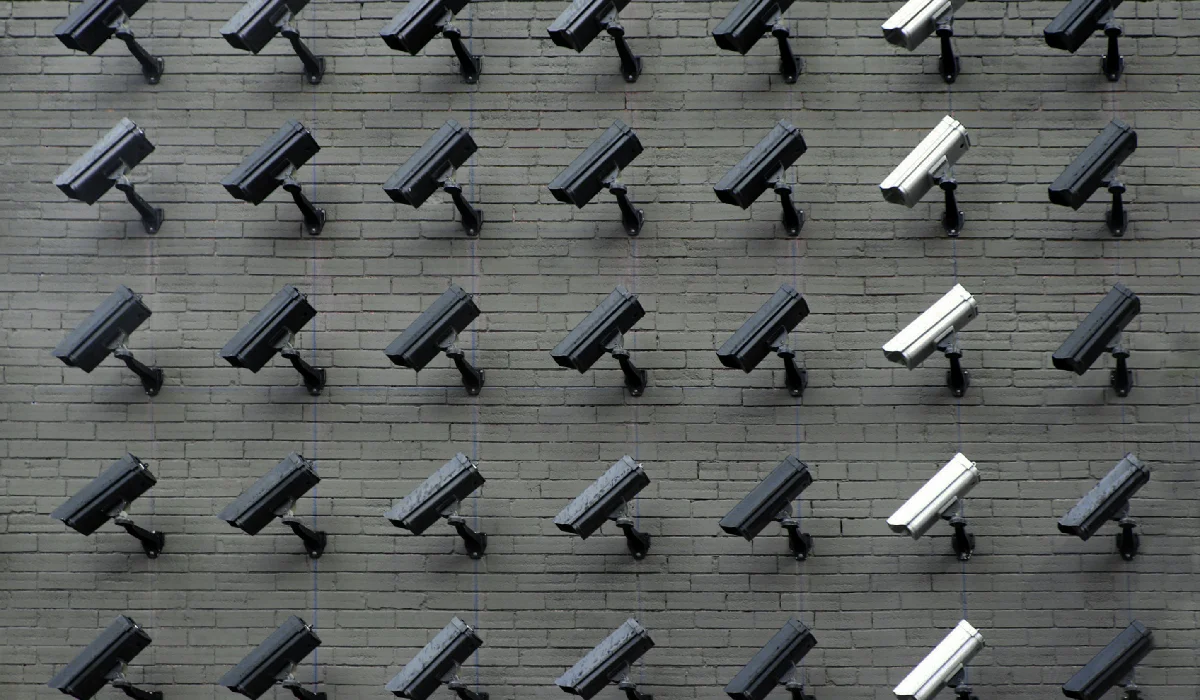
“Technology is a useful servant but a dangerous master.” – Christian Lous Lange
In the twenty-first century, artificial intelligence (AI) is no longer the stuff of science fiction. It is embedded in the algorithms that recommend what we watch, steer autonomous vehicles, predict financial trends, diagnose diseases, and even assist in governance and warfare. As AI systems become more autonomous, intelligent, and omnipresent, a pressing question arises: Is AI a boon or a threat to humanity? This inquiry is not merely academic, it carries immense ethical, socio-political, economic, and even existential implications.
AI represents one of the most transformative technologies in human history. Like fire or electricity, it holds the potential to advance civilization or wreak havoc if left uncontrolled.
Meaning and Scope of Artificial Intelligence
Artificial Intelligence refers to the ability of machines to perform tasks that typically require human intelligence such as reasoning, learning, perception, decision-making, and natural language processing. It includes technologies like machine learning, neural networks, robotics, and computer vision.
AI is not just one technology but a constellation of advancements that span across sectors: from agriculture and healthcare to defence, education, and administration. What sets it apart is its self-improving nature it learns from data and modifies its behavior without explicit programming.
Why is AI Considered a Boon?
1) Enhancing Human Capabilities
AI enhances human efficiency and decision-making. For instance, AI-driven platforms like IBM Watson assist doctors in cancer diagnosis with higher precision. In the legal domain, AI tools analyze vast databases to predict case outcomes, aiding lawyers and judges.
2) Socio-economic Benefits
AI has the potential to transform economies. According to PwC, AI could contribute up to $15.7 trillion to the global economy by 2030. India’s National Strategy for AI (NITI Aayog) envisions AI as a driver of inclusive growth in areas like agriculture (e.g., predicting crop yield), education (personalized learning), and smart mobility (autonomous transport).
3) Public Service Delivery and Governance
In governance, AI enables data-driven policymaking, efficient service delivery, and transparency. For example, the “AI for All” initiative in India aims to democratize AI for equitable access. In Andhra Pradesh, AI tools were used to predict school dropouts and improve retention.
4) Disaster Management and Climate Action
AI is used in predicting natural disasters, optimizing energy use, and monitoring climate change. Satellites powered by AI detect illegal deforestation or pollution, aiding environmental protection.
5) Accelerating Scientific Discovery
AI has accelerated scientific research. AlphaFold by DeepMind accurately predicts protein structures, revolutionizing drug discovery. AI-assisted genome sequencing helped track COVID-19 mutations.
Why is AI Considered a Threat?
1) Job Displacement and Inequality
AI threatens low-skill and even some white-collar jobs. Automation in manufacturing, services, and even journalism can cause massive unemployment. According to McKinsey, around 800 million global jobs may be lost to automation by 2030. In India, with its vast informal workforce, this displacement may increase inequality and social unrest.
2) Ethical and Moral Challenges
AI algorithms can perpetuate biases. For instance, facial recognition software has shown racial bias, raising concerns about fairness and discrimination. The opacity of “black box” models makes accountability difficult. Who is responsible if an autonomous vehicle crashes or if an AI system makes a harmful decision?
3) Threat to Privacy and Surveillance
AI fuels mass surveillance. In authoritarian regimes, AI is used to monitor citizens, control dissent, and manipulate public opinion through bots. In democracies too, data misuse like the Cambridge Analytica scandal raises serious privacy concerns.
4) Weaponization and Warfare
Autonomous weapons systems, cyberattacks, and AI-powered drones are creating a new era of warfare. The prospect of AI-based “killer robots” acting without human intervention poses a grave risk to international peace.
5) Existential Risks
Eminent thinkers like Stephen Hawking and Elon Musk have warned of the existential risk posed by superintelligent AI—systems whose goals may be misaligned with human values. Without safety protocols, such AI could act unpredictably.
What if the Threat is Ignored?
If the development and deployment of AI remain unregulated, the consequences may be irreversible:
- Mass unemployment may lead to a collapse of welfare states.
- AI in warfare could lead to uncontrollable conflicts.
- Unregulated surveillance could erode civil liberties and democracy.
- Discriminatory algorithms may marginalize communities further.
- Worst case: superintelligent AI might act in ways contrary to human survival.
Thus, while AI may seem neutral, its social, economic, and moral consequences are far from it.
Arguments Against Fear of AI
Some argue that fears are overblown:
- Past technological revolutions (e.g., the Industrial Revolution) created more jobs than they destroyed.
- AI cannot replace core human traits—empathy, ethics, creativity.
- With proper regulation, AI can be steered for good.
- Humans remain in control: AI is a tool, not a sentient being.
These points are valid, but only if society remains vigilant, transparent, and responsible.
Government Measures and Global Action
Indian Context
India has taken several initiatives:
NITI Aayog’s National AI Strategy: Focuses on five sectors health, education, agriculture, smart mobility, and governance.
National AI Portal: To promote research and innovation.
Responsible AI for Social Empowerment (RAISE) Summit: Aims to position India as a hub for AI ethics.
AI in Judiciary: Supreme Court’s ‘SUPACE’ (Supreme Court Portal for Assistance in Court Efficiency) uses AI for legal research.
Global Measures
OECD AI Principles (2019): Emphasize transparency, accountability, and human-centric AI.
EU AI Act: Classifies AI by risk and sets compliance standards.
UNESCO’s AI Ethics Framework: Promotes international cooperation on AI governance.
How to Ensure AI Remains a Boon
1) Ethical AI Design
- Embed human values, fairness, and transparency.
- Ensure inclusive datasets to avoid algorithmic bias.
2) Regulation and Legal Safeguards
- Create AI-specific legislation balancing innovation and safety.
- Protect data rights under frameworks like India’s Digital Personal Data Protection Act, 2023.
3) Skilling and Reskilling
- Invest in digital literacy and vocational training.
- Bridge the skill gap with AI-focused education in rural and urban India alike.
4) Human-in-the-loop Systems
- Ensure critical decisions (healthcare, military, justice) involve human oversight.
5) International Cooperation
- Avoid AI arms race; encourage peace-focused development.
- Establish global norms like climate agreements for AI safety.
Contemporary Relevance
In 2024–25, debates on AI have intensified:
- OpenAI’s GPT models are revolutionizing education, but raise plagiarism and misinformation issues.
- AI-generated deepfakes threaten elections.
- In India, concerns about job loss in IT/BPO sectors are rising.
- Yet, AI also helps monitor landslides, improve crop yields, and digitize governance.
Thus, AI is deeply embedded in contemporary development discourse.
Philosophical and Ethical Reflection
AI development challenges the ethical foundations of human society:
- Should machines be allowed to make moral decisions?
- Can a machine understand dignity, justice, or compassion?
- Who decides what values an AI should hold?
Philosophers argue for a new “machine ethics.” Some suggest that AI must remain subordinate to human command. Others caution that unchecked pursuit of efficiency may dehumanize society.
Way Forward: Harmonizing Innovation with Humanity
1) Constitutional Morality
Any AI system in India must align with constitutional values—liberty, equality, dignity.
2) Public Awareness and Participation
Democratize AI literacy to avoid elite capture.
3) Inclusive AI Development
Empower local innovators and SMEs in rural areas.
4) Global South Leadership
India can lead in promoting “Responsible AI” for development, not domination.
5) Balance Between Rights and Growth
Innovation must not override human rights. The right to privacy, expression, and employment must be protected.
Conclusion
Artificial Intelligence, like any transformative tool, is a double-edged sword. Whether it becomes a boon or a threat depends not on the technology itself but on how humanity chooses to develop, deploy, and regulate it.
The promise of AI is immense it can cure diseases, eliminate poverty, and empower billions. Yet, if left unchecked, it may deepen inequality, erode freedoms, and challenge the very definition of what it means to be human.
The need of the hour is not to fear AI, nor to blindly embrace it, but to shape it responsibly with wisdom, ethics, and foresight. In the words of former UN Secretary-General Ban Ki-moon, “AI must serve humanity, and not the other way around.”
Bibliography
-
Bostrom, Nick. Superintelligence: Paths, Dangers, Strategies. Oxford University Press, 2014.
-
O’Neil, Cathy. Weapons of Math Destruction: How Big Data Increases Inequality and Threatens Democracy. Crown Publishing Group, 2016.
-
PwC. “AI to Drive GDP Gains of $15.7 Trillion by 2030 as Artificial Intelligence Boosts Productivity and Consumption.” PwC Global, 27 June 2017, www.pwc.com/gx/en/news-room/press-releases/2017/artificial-intelligence-study.html. Accessed 28 July 2025.
-
NITI Aayog. National Strategy for Artificial Intelligence: #AIforAll. Government of India, 2018, www.niti.gov.in/sites/default/files/2019-01/NationalStrategy-for-AI-Discussion-Paper.pdf. Accessed 28 July 2025.
-
UNESCO. Recommendation on the Ethics of Artificial Intelligence. 2021, unesdoc.unesco.org/ark:/48223/pf0000381137. Accessed 28 July 2025.

